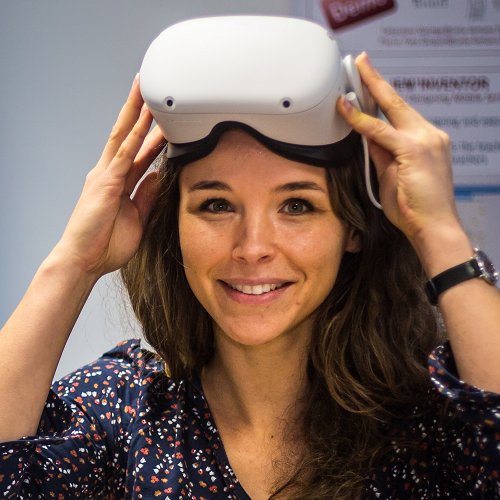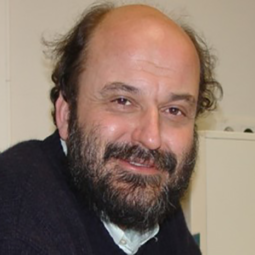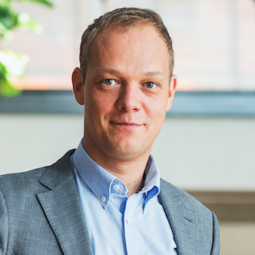Keynotes
At the EATEL summer school on Technology-Enhanced Learning, we are striving to invite excellent and diverse research as keynote speakers!
The Impact of Educational Technology Research in the Educational World: Do we need a Plot-Twist?
Monday 📅 5/6/2023 at 09:00
 is an Associated Professor in the Department of Didactics and School of Education at the University of Murcia and a member of the Group of Research in Educational Technology (GITE). A participant in international research projects on the implementation and impact of technology in formal and non-formal learning contexts, including leading the Spanish teams of the projects CUTIE and DALI and leading the research contract ARS-SELFIE: Digital Competences in Spanish Education: Strategic Regional Approaches of the Joint Research Centre of the EU. Linda’s current research portfolio includes critical perspectives on educational technology, competencies for the digital era, strategic approaches to Teachers’ Professional Development, digital transformation in educational institutions, socio-material perspectives of emergent pedagogies, and Personal Learning Environments.
is an Associated Professor in the Department of Didactics and School of Education at the University of Murcia and a member of the Group of Research in Educational Technology (GITE). A participant in international research projects on the implementation and impact of technology in formal and non-formal learning contexts, including leading the Spanish teams of the projects CUTIE and DALI and leading the research contract ARS-SELFIE: Digital Competences in Spanish Education: Strategic Regional Approaches of the Joint Research Centre of the EU. Linda’s current research portfolio includes critical perspectives on educational technology, competencies for the digital era, strategic approaches to Teachers’ Professional Development, digital transformation in educational institutions, socio-material perspectives of emergent pedagogies, and Personal Learning Environments.In today’s fast-paced world of educational technology, it’s more important than ever to conduct high-quality research that truly impacts the day-to-day lives of students, teachers, and communities. But how do we ensure that our findings are rigorous and actionable? and most important, how to make them educationally relevant. Join us for this keynote speech, where we reflect on the key elements that define impactful research in this field, from the importance of making explicit the paradigms behind and recreating or making evolve the methodologies, to navigating ethical considerations, up to crafting effective dissemination strategies. Let’s explore some of the perspectives we need to make a difference in the future of Educational Technology Research.
Rigor, ethics, wellbeing and resilience in the TEL doctoral journey
Monday 📅 5/6/2023 at 21:00
The doctoral thesis trajectory has been often characterized as a “long and windy road” or a journey to “Ithaka”, suggesting the promises and challenges of this journey of initiation to research. The doctoral candidates need to complete such journey (i) preserving and even enhancing their wellbeing, (ii) overcoming the many challenges through resilience, while keeping (iii) high standards of ethics and (iv) scientific rigor. This talk will provide a personal account of lessons learnt and recommendations from a senior researcher over his 30+ years of doctoral supervision and care for doctoral students. Specific attention will be paid on the special features of the (i) interdisciplinary doctoral research in Technology Enhanced Learning (TEL), (ii) the eventual convergence of mindsets and epistemological traditions in Information and Communications Technologies (ICT) and human-oriented learning, educational or social sciences, as well as (iii) the specific challenges posed by the human-oriented features of the TEL field.
Authoring tools for Technology-Enhanced Learning: giving the creative power back to teachers!
Tuesday 📅 6/6/2023 at 09:00

Research shows that Serious Games offer a great number of educational potentials. Yet, very few teachers actually use them or even know of their existence. It’s the same with Mixed Reality or Augmented Reality applications. These technologies offer great potential but are mostly used in research projects. Some schools will advertise the use of such technology but, in reality, they are only used in very rare occasions and seldom related to the pedagogical activities set up by teachers. In this talk, we will identify the difficulties related to the adoption of Serious Games and innovative interactions, such as Mixed Reality or Augmented Reality. We will then explore some of the solutions pursued by the computer science community and highlight what still needs to be done!
Towards Highly Informative Learning Analytics
Thursday 📅 8/6/2023 at 09:00
In the past, Hendrik was an elected board member of the Society of Learning Analytics Research (SoLAR) as well as a member of the board of the European Association of Technology-Enhanced Learning (EATEL). He has been the principal investigator and scientific coordinator of various national and EU projects.
Hendrik will be presenting the latest research outcomes on the Highly Informative and Learning Analytics (HILA) research program. In his presentation, he will discuss the effectiveness of HILA and the potential of data-enriched learning activities to provide highly informative feedback.
The research has shown that feedback has a powerful effect on learning success, and HILA provides even higher effects than traditional feedback methods. HILA will offer actionable feedback that goes beyond correct or wrong replies, providing suitable conditions for effective metacognitive control of the learning process.
In the past, providing HILA in class was time-intensive and not possible at large-scale university lectures due to a lack of personnel. However, with the help of computers and other digital devices, we will be able to design data-enriched learning activities that open up far-reaching possibilities to provide HILA.
During the talk, Hendrik will demonstrate how data-enriched learning activities are designed with domain experts, how the group curates a knowledge base on effective learning analytics indicators, and how the data-enriched learning activities will be researched in experimental settings. We are excited about the potential of HILA and data-enriched learning activities to improve learning outcomes, provide valuable feedback to students and to introduce ecological valid units of learning for research.
AI-driven Personalized Support to Human Learning Beyond Problem Solving
Friday 📅 9/6/2023 at 09:00
In this talk, I will discuss the unique challenges of this endeavor, and our proposed solutions to address them, including how to devise AI-driven models that can track and react to open-ended behaviors beyond those traditionally addressed by analogous models for problem-solving. I will also present results on the application of this approach to various environments for open-ended exploratory learning.


